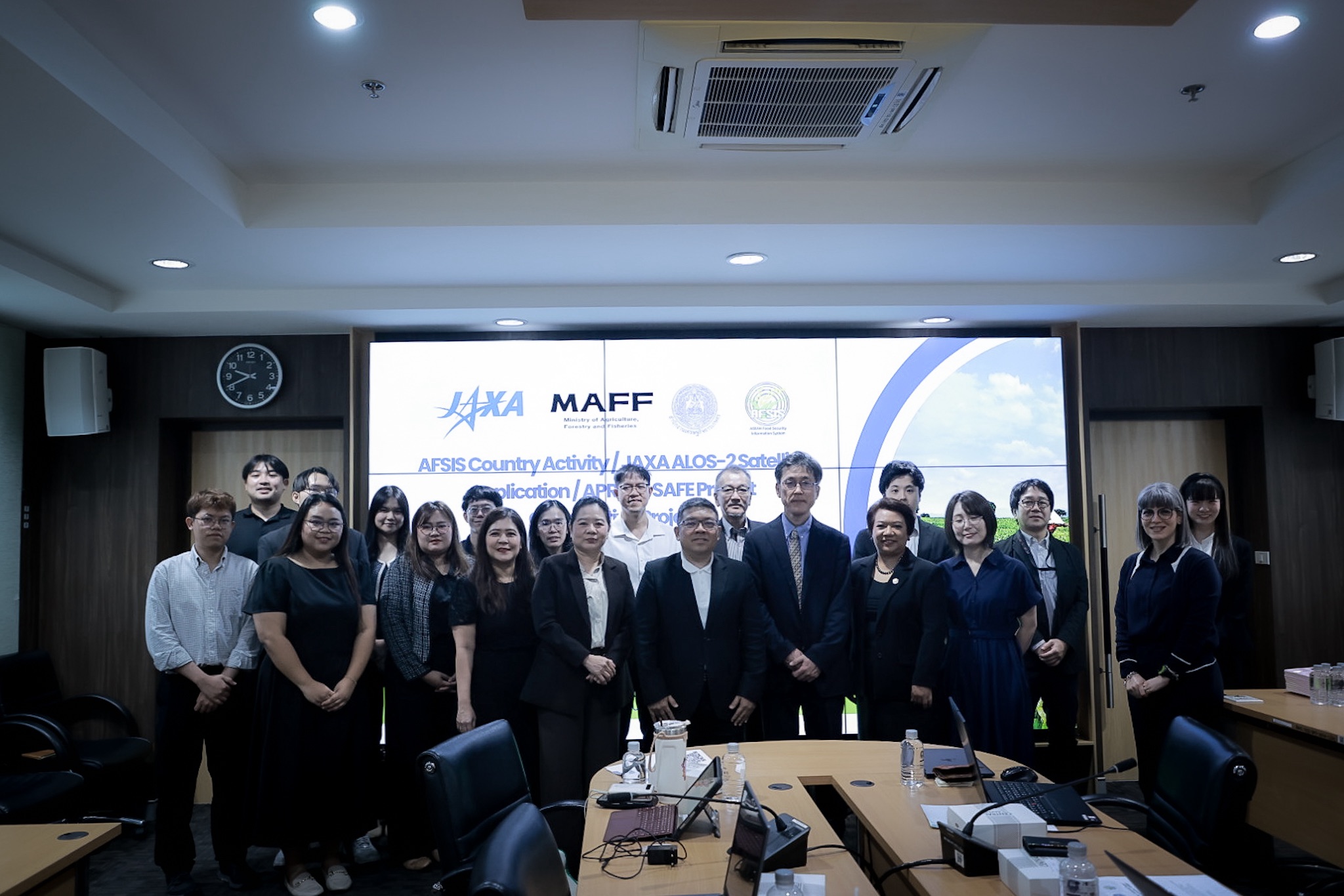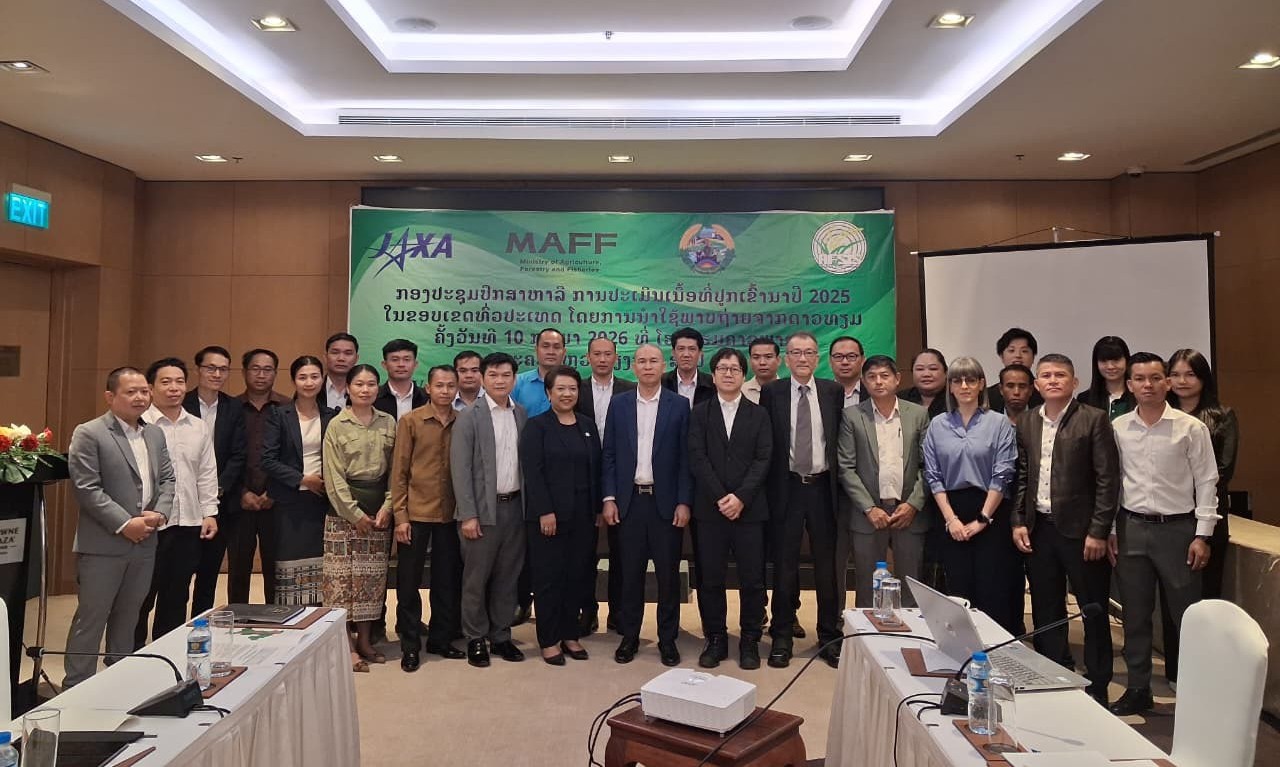
On 21 September 2022, Mr. Kimura Keitaro, Director, and Mr. Hosaka Masahiro, Deputy Director of Statistics Planning Division, Statistics Department from the Ministry of Agriculture, Forestry and Fisheries (MAFF) of Japan visited AFSIS Secretariat office.
On the occasion, AFSIS Secretariat led by Dr. Waraporn Saelee, AFSIS Manager, Ms. Sumanya Ngandee, Deputy AFSIS Manager, and Mr. Niimi Tomohiro, AFSIS Japanese Expert had an opportunity to introduce Mr. Kimura Keitaro and Mr. Hosaka Masahiro to Mr. Vinit Atisook, Deputy Secretary General, Office of Agricultural Economics (OAE) from the Ministry of Agriculture and Cooperatives (MOAC), Thailand during their visit. Furthermore, they also had an opportunity to visit Mr. Choomjet Karnjanakesorn, General Manager of APTERR Secretariat as well.
The highlight of conversation during the visit were mainly on the appreciation of Japanese government towards AFSIS Secretariat for the recent success of the Regional Workshop on SAS-PSA project, and to Thai Government for the kind support to AFSIS project. They also reiterated to continually support AFSIS activities and the continued cooperation between Japanese and Thai governments for strengthening food security in ASEAN Region.
For the next technical support from MAFF of Japan is the “Project of Strengthening ASEAN Food Security Information System (AFSIS) Function for Emergency” or SAFER project which is planned to start in October 2022 – September 2025 with the objective to strengthen the AFSIS function on immediate sharing of food security information in the case of emergency.







On 12-13 February 2026, the AFSIS Secretariat, in collaboration with the Japan Aerospace Exploration Agency (JAXA), the Remote Sensing Technology Center of Japan (RESTEC), Ministry of Agriculture, Forestry and Fisheries (MAFF) Japan and the Office of Agricultural Economics (OAE), Ministry of Agriculture Cooperatives (MOAC), conducted a workshop conducted a workshop The Promoting Rice Planted Area and Production Estimation Using INAHOR and Space-based Technologies in Thailand at the Meeting Room 2, Innovation Building, 3rd FL, Office of Agricultural Economics (OAE)

The In-Country Workshop on Promoting Rice Planted Area and Production Estimation Using Space-based Technologies in Lao PDR was jointly organized by AFSIS Secretariat, JAXA, MAFF Japan, and MAE Lao PDR under the AFSIS-GIS and SAFE projects. The event was held in Vientiane with hands-on training on 9 February 2026 and a workshop on 10 February 2026.
.jpg)
On 13–15 January 2026, the Office of Agricultural Economics (OAE), Thailand, in collaboration with the Ministry of Agriculture, Forestry and Fisheries (MAFF), Japan, and the AFSIS Secretariat, conducted the 1st Meeting of Japan–Thailand Expert Dialogue on Agricultural Statistics. The meeting was held at the Office of Agricultural Economics and field survey activities in Chonburi Province.

On 3–4 December 2025, the ASEAN Food Security Information System (AFSIS) Secretariat participated in the ASEAN Plus Three Emergency Rice Reserve (APTERR) Table Top Exercise (TTX) held in Bandar Seri Begawan, Brunei Darussalam.